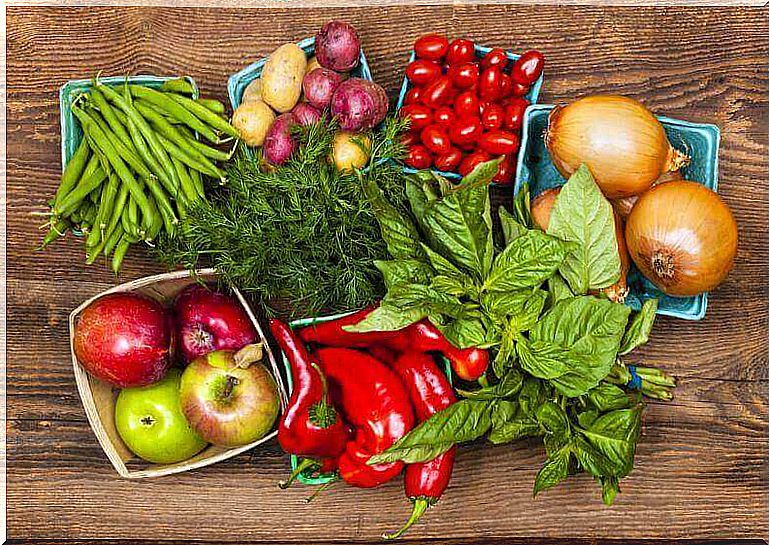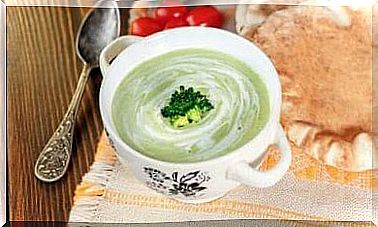Nourishing Food Options For Leukemia Patients

Leukemia is a cancer of the blood tissues, including the bone marrow and lymphatic system. There are different types of leukemia. Some are more common in children, others in adults.
Leukemia usually affects white blood cells, which are effective fighters against infections. In general, these cells divide and grow in a regulated manner, depending on the needs of the body. In leukemia, the bone marrow produces abnormal white blood cells that do not work properly.
Symptoms of leukemia
Symptoms of leukemia vary by type of cancer, but the most common are:
- Fever or chills
- Constant fatigue, weakness
- Recurrent or severe infections
- Weight loss
- Enlarged lymph nodes, enlarged liver or spleen
- Prone to bruising and bleeding
- Recurrent epistaxis
- Small red dots on the skin
- Excessive sweating, especially at night
- Pain or tenderness in the bones
The whys and wherefores
In general, leukemia occurs when mutations occur in the DNA of blood cells (DNA is the information in each cell that controls cell function). There may also be other changes at the cellular level that are not yet fully understood, but that may contribute to the development of leukemia.
These abnormalities cause the cell to grow and divide faster. Such a cell also lives longer than normal cells. Over time, abnormal cells may displace healthy blood cells in the bone marrow, reducing the number of healthy platelets, white blood cells, and red blood cells, causing symptoms of leukemia.
Medical classification of leukemia

Leukemia is classified according to how fast it develops and what cells it comprises.
Acute leukemia
In acute leukemia, abnormal blood cells are immature (so-called blasts). They are unable to perform their duties normally and are multiplying rapidly. Consequently, the cancer gets worse very quickly. Acute leukemia requires urgent, drastic treatment.
Chronic leukemia
There are many different types of chronic leukemia. Some of them produce too many cells, others too few. In chronic leukemia, blood cells are more mature. They copy and accumulate very slowly and can function normally for some time. Some forms of chronic leukemia have no symptoms at all in the early stages, which is why it is easily overlooked for years.
Chronic leukemia can be classified according to the type of white blood cells it affects:
- Lymphocytic leukemia: affects the lymphocytes that make up the lymph tissue, part of the immune system.
- Myeloid leukemia: affects the precursors of bone marrow blood cells.
Nutritious food options for leukemia patients
Food choices play a big role in leukemia. Here are some general guidelines:
Fiber-rich foods
- Rice and wholemeal bread
- Oats
- Beans of all types and colors
- Corn
- Lenses
- Flax seeds
These foods help the body speed up bowel movements and remove potential carcinogens from the digestive system, which prevents them from being absorbed into the body.
Regular fruit eating
The most fibrous and antioxidant fruits include:
- Watermelon
- Avocado
- Pineapple
- Strawberries, raspberries, blueberries
- Pears
- Apples
- Pomegranates
- Grapes
- Mango
- Kiwis
- Oranges
Avocado is an excellent source of fiber as well as monounsaturated and polyunsaturated fat (good fat). It helps lower the risk of heart disease and cholesterol.
For maximum benefit, it is best to eat most of the fruit with its peel.
Pomegranate is highly recommended because of the citric acid it contains (it has a disinfectant effect and also alkalizes urine and enhances the effects of vitamin C).
Absolute vegetables

Some of the best vegetables for cancer prevention are:
- Broccoli
- Cauliflower
- Carrots
- Tomatoes
- Eggplants
Lettuce and spinach contain luteolin, a flavonoid important in cancer prevention.
Cross-flowered vegetables help e.g. to protect cellular DNA and render carcinogens inactive. Add these to your diet:
- Broccoli
- Spinach Chinese cabbage
- Cabbage
- Sprout
- Green leafy vegetables









